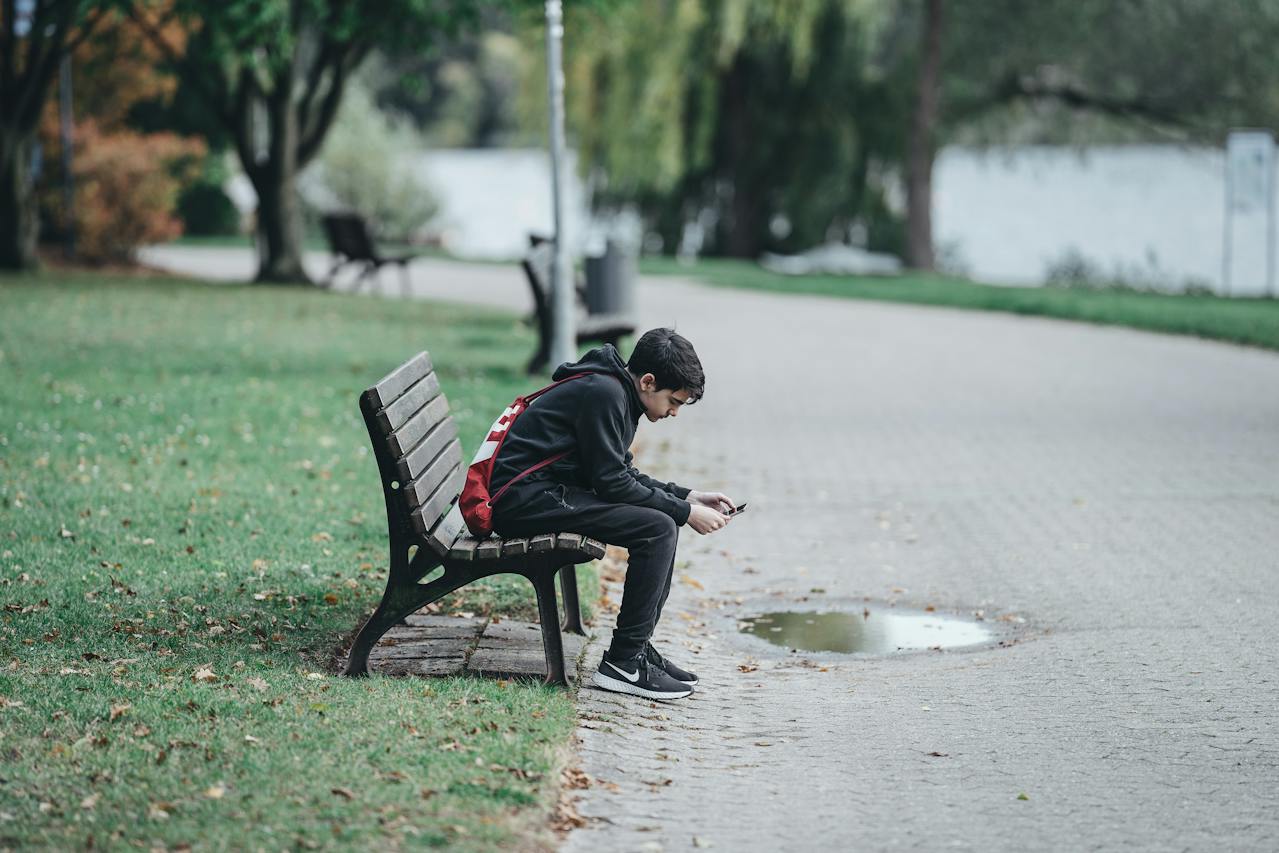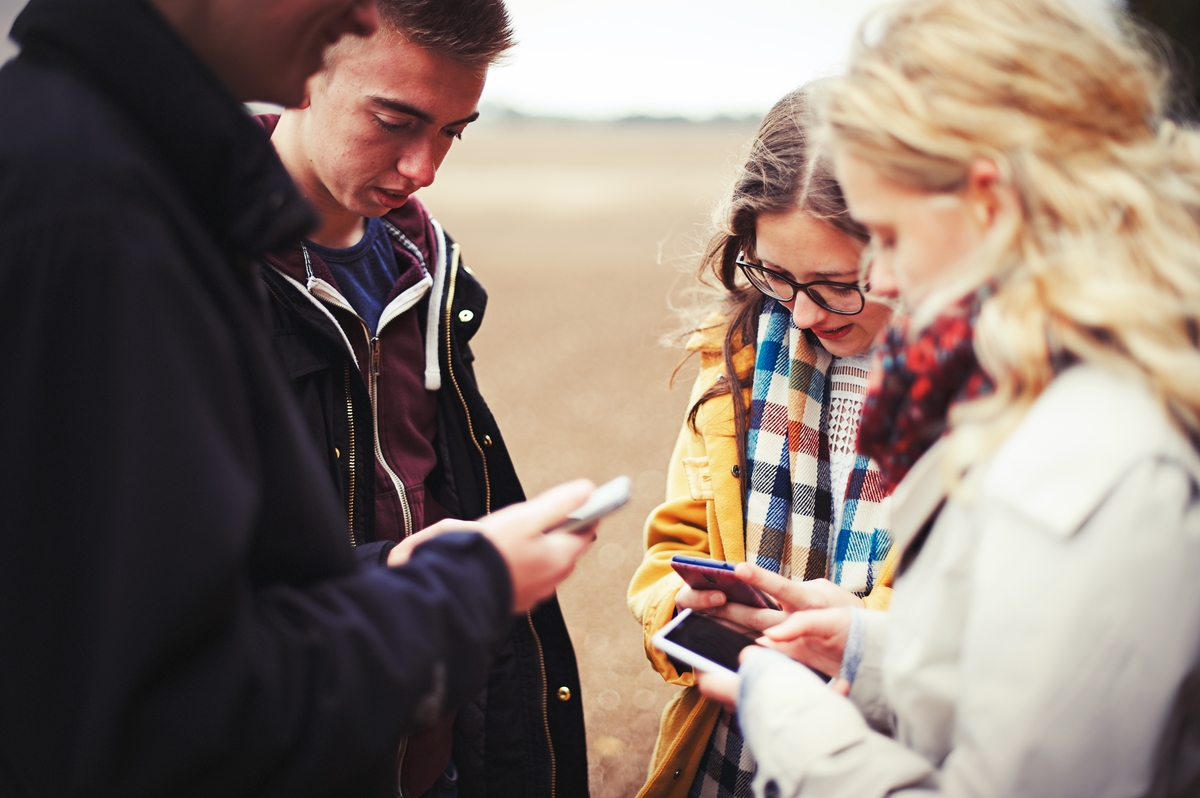There has been a lot of talk about the pandemic’s impact on mental health deterioration. Stay at home orders and social distancing reduced both time with others and physical exercise, which adversely impacted mental health. The decline in mental health as a result of the response to the pandemic has been well-documented and discussed. But according to Jonathan Haidt, social psychologist and professor at NYU, children and adolescents were already facing an epidemic of mental health challenges before the Covid pandemic. In fact, Haidt has pointed out that mental health challenges among adolescents did not spike as much as other demographics as a result of the pandemic. Mental health challenges among adolescents were already spiking before the pandemic because our culture had already unleashed an epidemic on them.
Haidt believes the epidemic began in 2012 and uses charts like these to point to 2012 as a marker year for the epidemic.
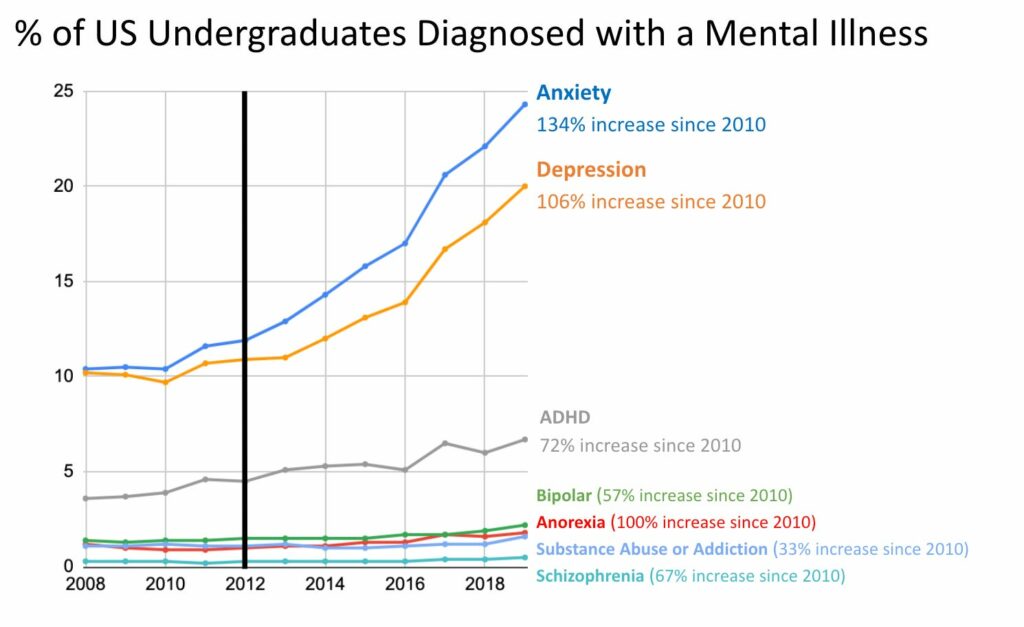
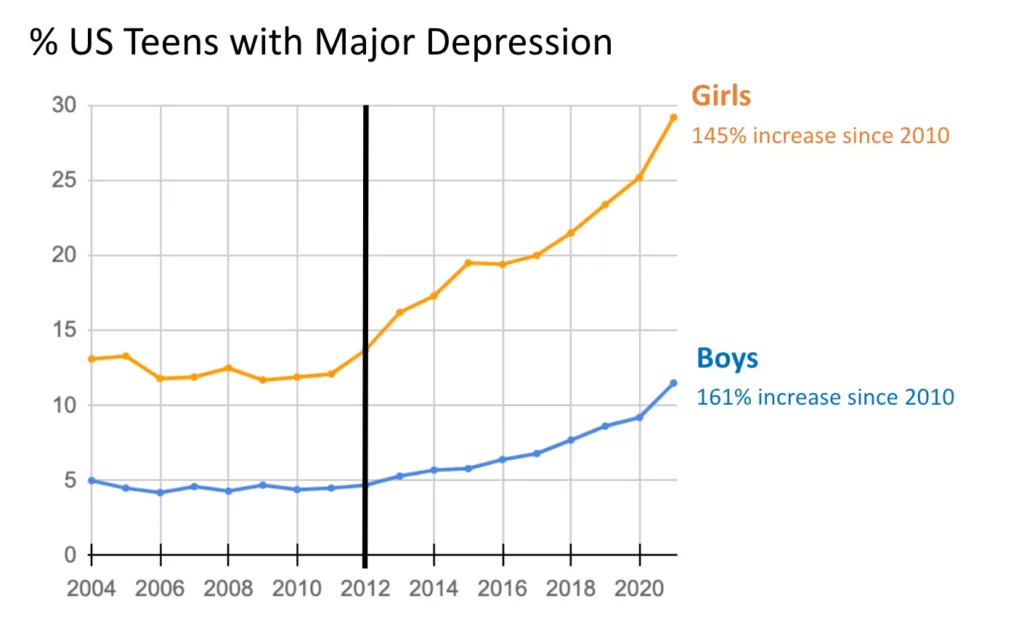
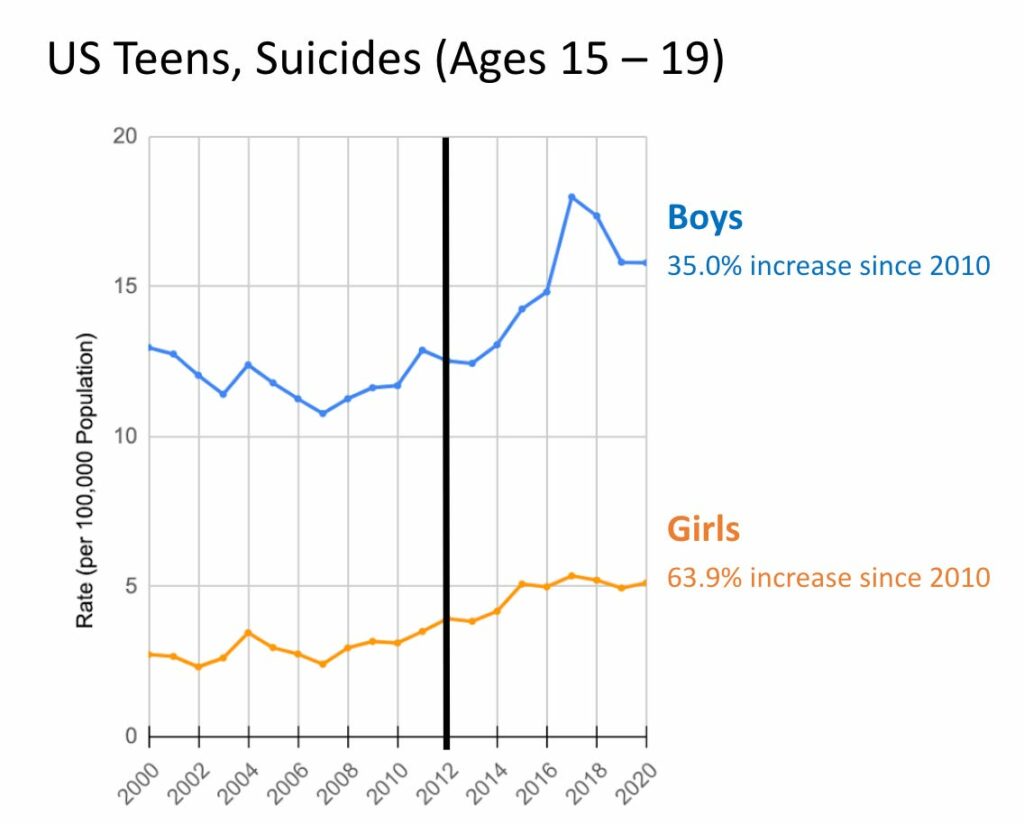
Haidt articulates that the epidemic began in 2012 when smartphone use with a connection to social media skyrocketed among adolescents. It could be said that we gave kids and teenagers an epidemic when we gave them phones with social media. While the pandemic lessened physical activity and face-to-face community for most demographics, we had already done that to adolescents when we gave them social media. To quote Haidt: “When school closures and social distancing were implemented in 2020, teens had already lost most of their social lives to their phones.”
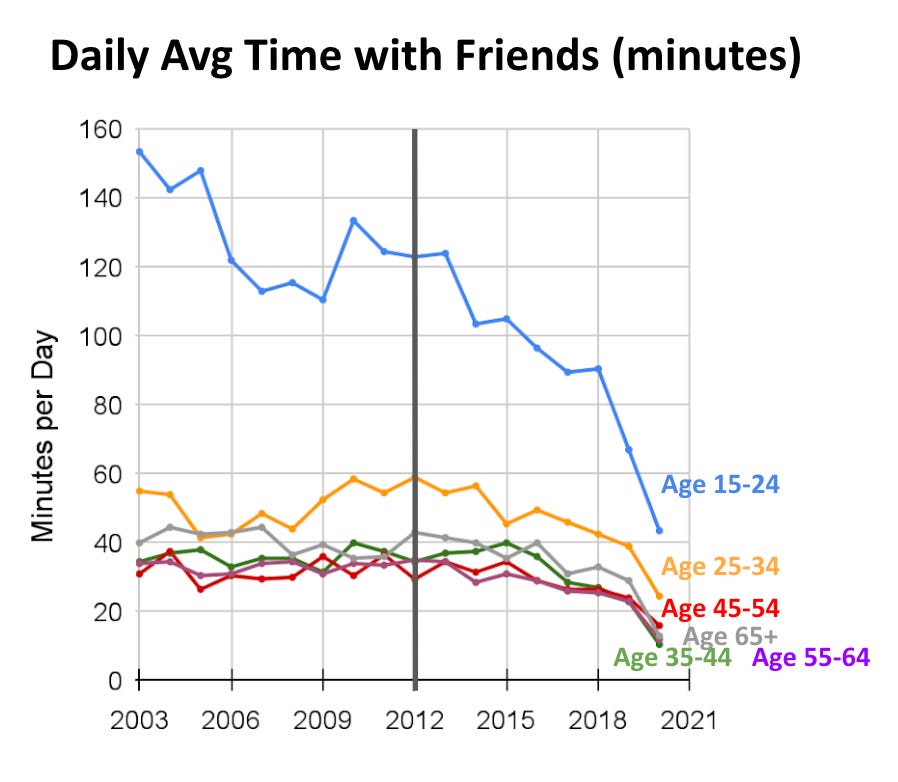
Jonathan Haidt and other psychologists and researchers have placed hundreds of pages of research about the impact of social media on mental health and on adolescents in an open-source Google document, and the data is very compelling. It was one of the researcher’s books, Jean Twenge’s book iGen, that solidified my parenting conviction to hold off on the phone for our daughters until high school.
The phone, though, is not the biggest problem. Haidt has pointed out that you can use Maps on your phone, but Maps does not use you. When it comes to social media, you are not the customer. You are the product sold to the customer—the advertiser who is paying money for your attention. Thus, the business model of social media mandates designers and developers work to keep us, and our kids, on the apps for as long as possible so that they have more compelling data to dangle in front of advertisers.
In our parenting, during the early days of the pandemic, we worked to lessen the adverse implications of isolation, of Zoom school, and of not being physically active. Once I posted about going stand-up paddleboarding with my daughters and had multiple comments claiming “you are violating the mandate.” Rebellion was not my goal; caring for my daughters was. In our parenting in the midst of an epidemic, in the midst of caring for our daughters, we needed to rebel and help them rebel against the current cultural norms of social media usage during adolescence.


